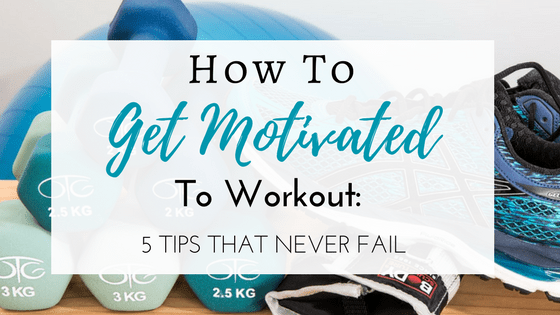Wellness
How to get motivated to work out?

To wake up from bed and workout is something that seems very hard for us. Some workout in the morning while some in the evening. After a tiring day at work or college, getting into your workout clothes and jumping into action also is hard, right? Here are few tips for you on how to make your routine active and happening.
- Unrealistic Expectations– All the fitness freaks you see out there, they have been training hard for years to get there. Do not think that they got it in a very short time, hence you could too. These thoughts always leave you frustrated and angry.
- Timelines– You can never expect your body to change in a certain time. Instead forget about timelines, enjoy your journey in fitness, and discover your strength and weakness. Find what all beautiful things your body could do.
- Workout Routine– Find out a routine that best suits you rather than doing hard workouts and thinking it will work. That is not how you become fit. Never compare your fitness journey with another person. All body types are different.
- Inconsistency– The more consistent you are the more motivated you become. You don’t have to work-out out daily to become consistent. Even if you exercise 3-4 days a week, if you are consistent, you can see changes in your body.
- All or nothing– Never do so much workout at once. It will tire you. One should understand that workouts are not to just make you physically fit. It also helps you reduce anxiety and your negative mood by improving your self-esteem and gives you confidence.
So everyone who is going to work-out, in whatever stage you are in right now, having a great Hourglass body, or Six pack abs does not define how fit you are. Being healthy by eating clean, clean as in not dieting but less eating of junk food, and having core strength and stamina is enough for a great healthy body. Love your body irrespective of what stage you are in. If you want to begin working towards a healthy body, do it right away. Waiting for the right time to come has never helped anyone achieve anything. Work hard, focus on your mind and body and allow them to show you what they are capable of doing.
Words by: Malavika Venugopalan
Wellness
Kintsugi: The Art of Embracing Imperfections

Kintsugi, an ancient Japanese art form, beautifully illustrates the philosophy of finding beauty in imperfection. Translating to “golden joinery,” Kintsugi involves the repair of broken pottery by mending the cracks with lacquer mixed with powdered gold, silver, or platinum. Instead of hiding the damage, Kintsugi emphasizes the fractures, turning them into unique, golden veins that celebrate the history and flaws of the object.
The Origins and Philosophy of Kintsugi

Dating back to the 15th century, Kintsugi emerged during the Muromachi period in Japan when Shogun Ashikaga Yoshimasa sent a damaged tea bowl to China for repairs. Disappointed by the lackluster results, Japanese craftsmen began experimenting with more aesthetic solutions, ultimately developing Kintsugi as a delicate blend of craftsmanship and philosophy.
Kintsugi is deeply rooted in the Japanese principle of wabi-sabi, which appreciates the transient and imperfect nature of life. The art form embodies the idea that brokenness is not something to be hidden but embraced, turning flaws into features that add character and beauty. This approach teaches us to value resilience and transformation, finding strength in vulnerability and growth in the aftermath of adversity.
The Process of Kintsugi
The Kintsugi process is meticulous and requires patience. First, the broken pottery pieces are carefully cleaned and realigned. A lacquer made from urushi, a tree sap native to Japan, is applied to bond the pieces together. Once dried, the lacquer is mixed with powdered gold, silver, or other metals, creating a brilliant contrast that highlights the cracks. The final result is a restored object, now more valuable and striking for having been broken.
There are three main techniques in Kintsugi:
- Crack Repair: Filling simple cracks with gold or another precious metal to showcase the repaired lines.
- Piece Replacement: Using gold to fill in missing parts of the pottery, creating a striking effect where the gaps were once evident.
- Joint Call: Combining different pieces from separate items to form a new, unified whole.
Symbolism and Modern Interpretations

Beyond its aesthetic appeal, Kintsugi carries profound symbolism. It serves as a reminder that, like pottery, human beings can also be broken and healed, and that these imperfections become integral to our identity. In a world that often seeks perfection, Kintsugi advocates for self-acceptance and the celebration of our own personal journeys of healing and renewal.
In modern times, Kintsugi has transcended its original context and found a place in various art forms, design, and even personal development philosophies. It is often referenced in literature, fashion, and mental health discussions as a metaphor for resilience and the beauty of imperfection.
Kintsugi in Contemporary Culture
Kintsugi’s influence has reached far beyond Japan. Artists, designers, and even therapists have embraced its concepts to inspire creative projects and self-reflection. In the world of fashion, for instance, the Kintsugi technique has inspired prints, patterns, and embellishments, representing fractured beauty through clothing. In interior design, Kintsugi-inspired pottery and decor have become symbols of elegance and mindful living.
Beyond art, Kintsugi’s message resonates with personal growth and wellness. It teaches us to honor our personal scars and experiences, making them part of who we are instead of something to hide.
The Beauty of Brokenness
Kintsugi is a timeless art form that transforms brokenness into beauty, offering a powerful metaphor for life. By emphasizing the beauty in imperfections, it teaches us to embrace flaws and recognize that each crack tells a story. In doing so, Kintsugi challenges us to rethink our relationship with imperfection, urging us to find beauty in our own broken pieces.
Wellness
Art Therapy: The Healing Power of Creativity

In a world filled with stress, anxiety, and emotional turmoil, finding solace and healing through creative expression has become increasingly recognized and valued. Art therapy harnesses the transformative power of creativity to promote emotional well-being, self-discovery, and healing. Let’s explore the profound impact of art therapy and how it can unlock the healing potential within all of us.
What is Art Therapy?
Art therapy is a form of psychotherapy that uses art-making as a therapeutic tool to explore and express emotions, thoughts, and experiences. Through various artistic mediums such as painting, drawing, sculpting, and collage, individuals are encouraged to tap into their inner creativity as a means of self-expression and self-discovery.
In art therapy sessions, trained therapists provide a safe and supportive environment for individuals to explore their feelings and experiences through art-making. Participants are guided through various exercises and prompts designed to stimulate creativity, encourage self-reflection, and promote emotional healing.

Art therapy offers a wide range of benefits for mental, emotional, and physical well-being:
- Emotional Expression: Art provides a non-verbal means of expressing emotions that may be difficult to articulate verbally.
- Stress Reduction: Engaging in creative activities can reduce stress levels and promote relaxation, helping individuals to cope with life’s challenges more effectively.
- Self-Exploration: Art-making allows individuals to explore their inner thoughts, feelings, and beliefs, fostering greater self-awareness and insight.
- Healing Trauma: Art therapy can be particularly effective in processing and healing trauma, providing a safe outlet for releasing pent-up emotions and transforming painful experiences.
- Enhanced Communication: For individuals who struggle with verbal communication, art therapy offers an alternative mode of expression, facilitating communication and interpersonal connections.

Art therapy is used in a variety of settings and populations, including:
- Mental Health Treatment: Art therapy is often used as part of treatment for individuals with mental health disorders such as depression, anxiety, PTSD, and eating disorders.
- Hospitals and Healthcare Settings: Art therapy is utilized in hospitals and healthcare settings to promote healing and well-being among patients coping with illness, chronic pain, or medical procedures.
- Schools and Education: Art therapy programs in schools help children and adolescents explore and process emotions, develop coping skills, and enhance self-esteem.
- Community and Social Services: Art therapy is used in community settings to support individuals facing life transitions, grief and loss, addiction recovery, and other challenges.

Interested in exploring art therapy? Here are some tips to get started:
- Find a Qualified Art Therapist: Look for a licensed art therapist who has completed specialised training and certification in art therapy.
- Experiment with Different Mediums: Don’t be afraid to explore different artistic mediums and techniques to find what resonates with you.
- Set Aside Time for Creativity: Make time in your schedule for regular art-making sessions, even if it’s just a few minutes each day.
- Embrace the Process: Remember that art therapy is not about creating a masterpiece; it’s about the process of self-expression and self-discovery.
Art therapy offers a powerful avenue for healing, self-expression, and personal growth. By tapping into our innate creativity, we can unlock the healing potential within ourselves and embark on a journey of self-discovery and emotional well-being. Whether you’re struggling with mental health challenges, navigating life transitions, or simply seeking greater self-awareness, art therapy offers a safe and supportive space to explore, express, and heal.
Wellness
Embracing the Magic of Simple Walking Every Day

In our modern, fast-paced world, where everything seems to be in constant motion, it’s easy to overlook the simple yet profound act of walking. Walking is not just a means of getting from point A to point B; it’s a gateway to a myriad of physical, mental, and emotional benefits. In this blog, we’ll explore the magic of simple walking every day and how it can transform our lives for the better.
Physical Health Benefits:

Walking is one of the most accessible forms of exercise, requiring no special equipment or membership fees. It strengthens the heart, improves circulation, and helps maintain a healthy weight. Regular walking has been linked to a reduced risk of chronic diseases such as heart disease, diabetes, and certain cancers. It’s gentle on the joints and can be adapted to any fitness level, making it an ideal form of exercise for people of all ages.
Mental Clarity and Creativity:

Walking has a profound effect on our mental well-being. The rhythmic motion of walking can help clear the mind and reduce stress and anxiety. Many great thinkers, from Aristotle to Steve Jobs, have extolled the virtues of walking for sparking creativity and problem-solving. Studies have shown that walking in nature, known as “forest bathing,” can have a calming effect on the mind and improve cognitive function.
Connection with Nature:

Walking provides an opportunity to connect with the natural world, even if it’s just a stroll through a neighborhood park. Spending time outdoors has been shown to boost mood and increase feelings of vitality and happiness. Observing the changing seasons, listening to birdsong, and feeling the sun on your face can foster a sense of awe and wonder.
Social Connection:

Walking can be a social activity, whether it’s taking a leisurely stroll with a friend or joining a walking group in your community. Walking side by side with someone facilitates meaningful conversations and strengthens relationships. Even walking alone can create opportunities for serendipitous encounters with strangers and moments of connection.
Mindfulness and Presence:

Walking can be a form of moving meditation, allowing us to be fully present in the moment. Focusing on the sensations of walking – the rhythm of our breath, the feeling of our feet connecting with the ground – can bring us into a state of mindfulness and awareness. Walking mindfully can help us let go of worries about the past or future and find peace and contentment in the here and now.
In a world that often values speed and efficiency above all else, the simple act of walking reminds us to slow down, savour the moment, and appreciate the beauty of our surroundings. By incorporating regular walks into our daily routine, we can reap a multitude of physical, mental, and emotional benefits that enrich our lives in profound ways. So lace up your shoes, step outside, and discover the magic of simple walking every day.
-

 Style11 months ago
Style11 months agoBridal Guide : Best Looks of Radhika Merchant Ambani
-

 Fashion1 year ago
Fashion1 year agoMost Discussed Ajrakh Saree of Alia Bhatt
-

 Entertainment1 year ago
Entertainment1 year agoBridal Bliss : All Bridal Looks of Swasika Vijay
-

 Movies1 year ago
Movies1 year agoA Nostalgic Journey Through Love &Cinema : Best Bollywood Romantic 90s Movies
-

 AD8 months ago
AD8 months agoPopular Curtain Fabrics to Consider for Your Home
-

 Events9 months ago
Events9 months agoBest of Fashion Looks : Diya Krishna Wedding
-

 Events8 months ago
Events8 months agoThe L’Oréal Paris Show at Paris Fashion Week 2024
-

 news8 months ago
news8 months agoLaapataa Ladies: Kiran Rao’s Social Satire Becomes India’s Official Entry for the 2025 Oscars

























